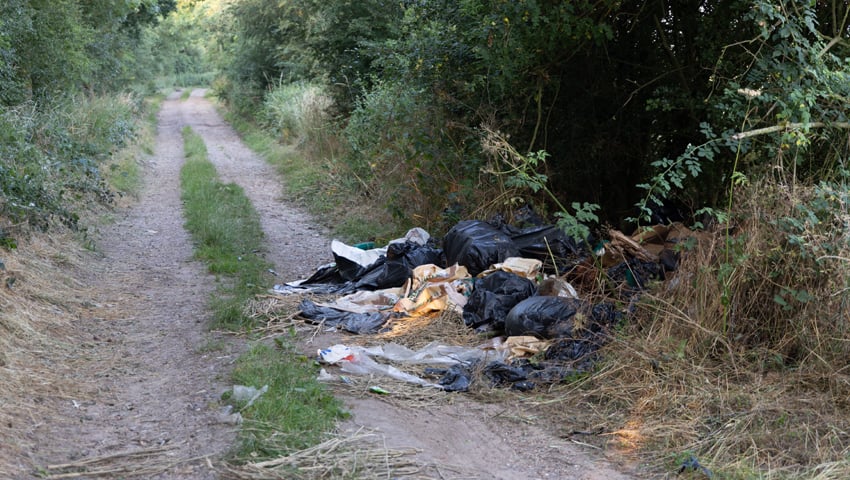ON-THE spot fines for fly-tipping are set to rise as part of a crackdown on anti-social behaviour.
Environmental crimes like littering and fly-tipping are cynical and opportunistic, damaging wildlife and nature, creating eyesores and ruining our enjoyment of the countryside.
The new upper limit to fines will deter people from harming our public spaces in the first place, and ensure that those who continue to offend face tougher consequences.
To help equip councils with everything they need and strengthen their arm, government is laying a statutory instrument increasing the upper limits for various fixed penalty notices on Monday 10 July. This means:
- The maximum fine for fly-tipping will increase from £400 to £1,000
- The maximum fine for litter or graffiti will increase from £150 to £500
Environment Secretary, Thérèse Coffey said “Everyone loathes litter louts and people who dump rubbish. We are increasing the penalties local councils can apply for this behaviour that spoils our streets and harms nature.“
Environment Minister Rebecca Pow said “We’re taking action right across government to crack down on anti-social behaviour and ensure waste criminals face justice – but it’s vital that communities have the tools they need to address the problem as well. That’s why we are supporting local authorities by increasing the upper limit for on-the-spot fines and ring fencing the proceeds for clean-up and enforcement operations.”
creasing the upper limit on fines the government has launched a consultation on ring fencing the receipts from fixed penalty notices for litter and fly-tipping to fund local authorities’ enforcement and clean-up activities, such as spending the money raised from fining criminals on further enforcement officers.
This would see the money paid by criminals go directly back into repairing the damage from their crimes, or into enforcement efforts to prevent similar incidents from happening again.
The consultation seeks to understand more about how fixed penalty notice receipts are currently spent and what the impacts of restricting the spending of these receipts to a set list of enforcement and clean-up functions would be.
The government wants councils to take a much tougher approach to this type of anti-social behaviour. Taking proportionate and effective enforcement action against people who intentionally or carelessly damage their environment is a practical step local authorities can take to change behaviour and deter others from offending.
In 2021/22, councils dealt with almost 1.1 million incidents of fly-tipping and issued 91,000 fines, along with other enforcement actions.
Local authorities will have the freedom to set the rates that offenders should pay, within the limits above.
The higher fines to crack down on littering and fly tipping comes alongside Defra’s wider work to tackle waste crime and take the fight to offenders.
Defra has also announced that fees for disposing of household DIY waste at recycling centres will be abolished – helping people to deal with their waste responsibly and removing a financial burden that gets in the way of people dealing with their waste responsibly.
